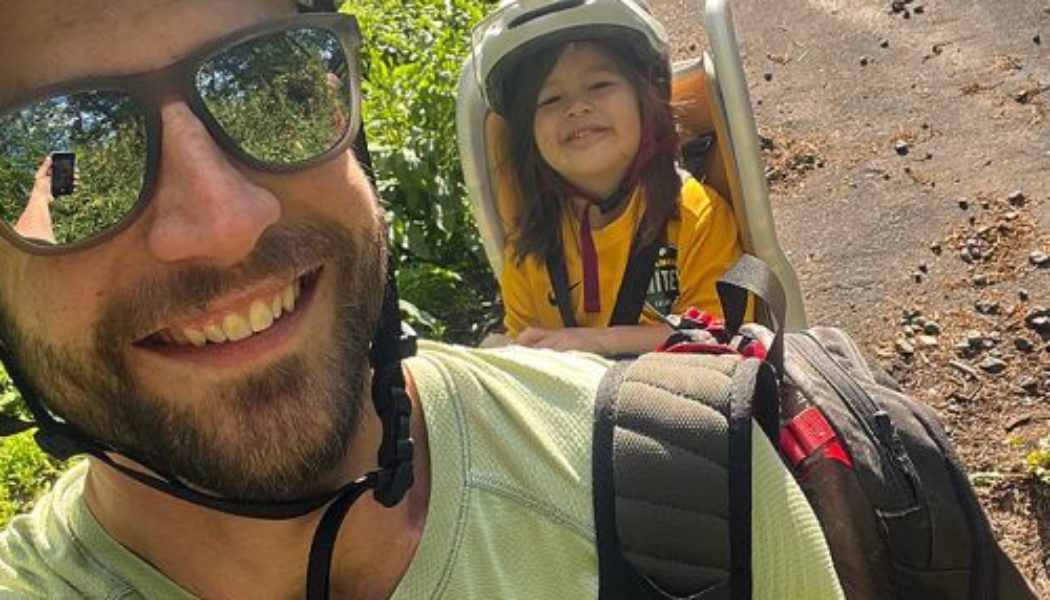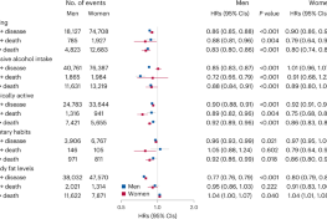Nationally, the number of bike commuters has dipped slightly in recent years, with 2.9% of all commuters biking or walking to work in 2022. That’s even as the average number of bike trips per day has increased by 37% from 2019 to 2022, according to StreetLight Data.
“There’s all kinds of good reasons for cycling,” said Beth Campbell, Parking and Transportation Administrator at Duke. “It’s better for the environment, but it’s also better for your wallet. And it’s good exercise and parking is a whole lot easier.”
If you’re considering switching to cycling to work or to get around your community, here are some aspects to consider in advance.
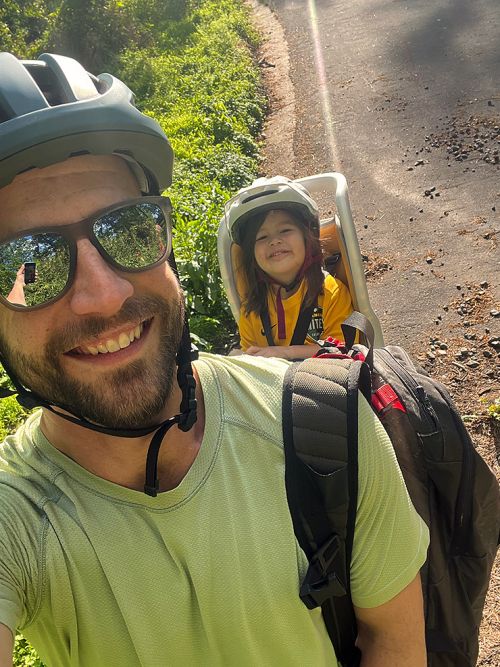
Map a Good Route
Nick Turner lives in Hillsborough, about 15 miles away from his office at Hanes House, where he is also an Assistant Professor of Medicine in Infectious Diseases.
He’s originally from Wisconsin and loved when he could cross-country ski to work during snowy winters there. He thought biking might be a natural replacement for his favorite mode of commuting when he came to Duke in 2019.
But there was one big hurdle.
“Coming from Madison, Wisconsin, which is a great biking city, there aren’t as many bike lanes here,” Turner said. “It was initially a little bit scary to me.”
He invested in a gravel bike and plotted a route to the office that travels along unpaved fire roads through Duke Forest. It takes him about 45 minutes to get to work, and an hour on the way home – when he must conquer the incline of an uphill portion.
It’s worth it.
“I largely stay clear of cars – and get to see a lot more nature,” Turner said.
Know the Benefits
There are obvious personal and societal benefits of biking to work.
“The natural things are it’s good for physical health, but more importantly it’s a good way to clear your head and be outside in nature for mental health,” Turner said. “And then, of course, it’s nice for the environment since you can spare a lot of car miles.”
But it also helps to know the special benefits available to registered bike commuters at Duke such as three free daily parking passes per month for days that they might need to drive and seven shower locations on campus. Duke IDs are checked.
Yarrington often uses his three free daily parking passes when his wife is traveling and he needs to shuttle both his 6-year-old son to school and his 3-year-old daughter to day care.
“The logistics of school and day care drop-off become more complicated,” Yarrington said. “I would say 90% of the time that’s the reason I’ll have to drive.”
Find Biking Buddies if Possible
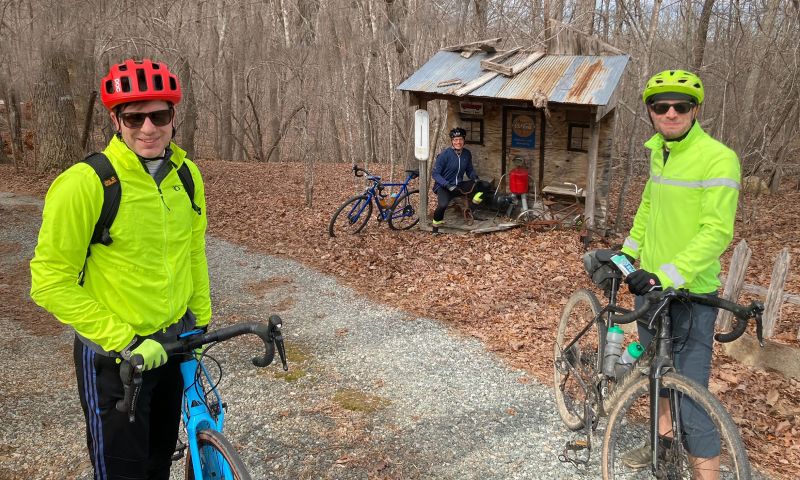
Both Yarrington and Turner work in Infectious Diseases, where a strong contingent of bikers encourages each other to ride into work. About five colleagues on the first floor of Hanes House primarily bike to work, Yarrington said, and they often all stow their bicycles in their offices.
Their co-worker, Jason Stout, lives in Chapel Hill, and Yarrington or Turner often will leave from the office as the same time as Stout, turning off to their respective houses before Stout has to make the longer journey home.
“There’s always more safety in numbers,” Yarrington said.
That camaraderie has translated to out-of-office hobbies, too – Turner and another frequent biking colleague, Chris Polage, are competing in a 131-mile Belgian Waffle Ride on a route snaking through the Blue Ridge Mountains in June. They did the 79-mile version last year.
Be Flexible and Enjoy the Ride
Rain and other inclement weather happens. So do last-minute schedule changes. Cyclists like Yarrington and Turner bike to work for multiple reasons – but they remain flexible in the event something throws off their plans or intentions.
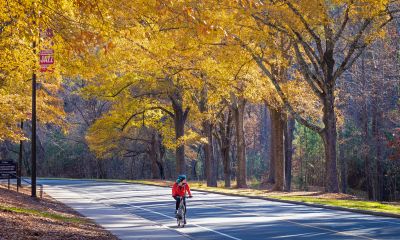
Yarrington often mixes runs to and from work with his biking trips, making sure to take in extra changes of clothes on bike days so he doesn’t have to run with his hands full. Neither mode of commuting is particularly taxing, but it’s now a part of his day that he cherishes.
“It’s a lot of time saved, because I feel like it’s actually translated into time that’s well-spent exercising,” Yarrington said.
And Turner doesn’t mind having to bike uphill on his rides home after a long day in the office.
“At the end of a stressful day, sometimes it’s good to press a little harder,” he said.
But overall, there might be one standout reason biking can be a superior mode of transportation for some: “My inability to tolerate a daily commute in the car is the other major reason,” Yarrington said.
Send story ideas, shout-outs and photographs by writing working@duke.edu.
Follow Working@Duke on X (Twitter), Facebook, and Instagram.
